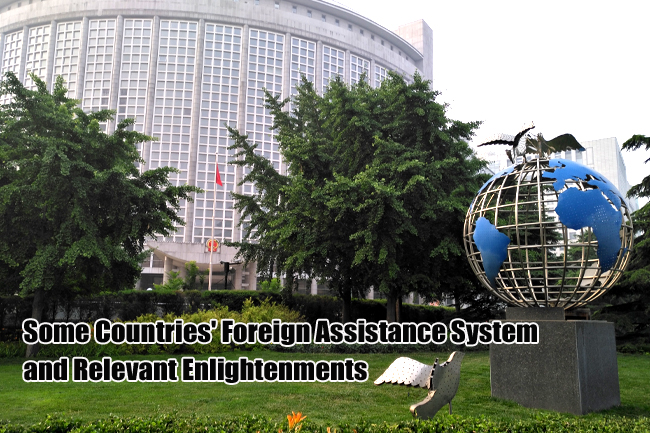Reform of Some Countries' Foreign Assistance System and Relevant Enlightenments
Nov 15,2017

By Research Team of DRC
2017-8-8
The world major developed countries have formed five reform roadmaps relating to the formulation and implementation of foreign assistance policy. Emerging economies have mostly based themselves on the establishment of independent or semi-independent specialized agencies for the international development cooperation as the reform goals and have achieved different results.
I. The reform roadmaps and effects of some developed countries’ foreign assistance management systems.
Since the 1990s, three basic reform patterns of foreign assistance management systems have been formed in developed countries. First, the regional departments of the foreign ministry or the development cooperation departments are responsible for policy formulation and project implementation, and countries in northern Europe, Australia and Canada have adopted this pattern. Second, some countries established policy formulation and enforcement agencies, and these countries include the United States, Japan, Germany and France. Third, some countries set up independent cabinet departments in charge of the policy formulation and project implementation, and this pattern was created by the United Kingdom. The common goal of their institutional reform is to strengthen the overall coordination of foreign assistance participants, overcome the increasingly fragmented mode of the institution and improve the effective results of assistance in line with the government foreign strategy. But the system reform roadmaps among countries are quite different from each other, and they can be summed up in the following five major aspects. First, the establishment of cabinet departments which are solely in charge of policy formulation and implementation. Second, the integration of agencies for the implementation of foreign assistance into economic sectors for foreign affairs. Third, the reform-based integration of agencies for the implementation of foreign assistance, with the focus laid on the coordination of implementation. Fourth, the establishment of high-level coordination mechanism among ministries with the focus laid on the coordination of policy-making. Fifth, Efforts are focused on the improvement of the coordination between policy-making and implementation agencies.
II. The reform and performance of international development and cooperation management systems in emerging economies.
The foreign assistance of emerging economies is traditionally affiliated to the country’s diplomatic and economic sectors. Along with the increasing of foreign assistance funding on a larger scale, many countries have launched the reform on relevant systems, targeting at enhancing the institutional construction of the international development and cooperation management as well as the comprehensive coordination of foreign assistance affairs. Thailand, Chile, Czech, and Turkey have established international cooperation agencies under the Foreign Ministry. Russia has established a management model with inter-ministerial cooperation and coordination under the guidance of the President, which means the President’s office is in charge of the overall coordination and the ministries of foreign affairs, finance, agriculture and education would put into effect different types of assistance projects. In general, the reforms in emerging economies are facing great challenges, and Brazil, India and South Africa are cases in point.
III. Common factors affecting the reform of foreign assistance management system.
Viewing from the practice of various countries, the roadmaps of foreign assistance management reform in countries share more common characteristics. In short, the value concept, material basis and public management theory have constituted the common factors affecting system reform. First, the transformation of value concept is the fundamental motivation for the reform of foreign assistance management system. 1. The positive international strategy and the value option of foreign assistance. 2. The value option between foreign assistance and foreign affairs and trade. 3. The value options of the government, Party and public towards domestic and international interest distribution. Second, the material basis based on financial, material and human resources is an important factor affecting institutional reform. 1. The state’s financial resources. There’s a clear positive correlation between the level of foreign assistance funding and the independence of its management institution. 2. Participating entities of foreign assistance. The high degree of openness and the large number of participants are not only foundations for the development of foreign assistance projects, but also an important reason for the fragmented mode of the management system. 3. Professionals for international development. The international development management agencies beyond foreign affairs and trade departments need many professionals in the field of development. Third, public management theory provides guidance for institutional reform.
IV. Enlightenments and suggestions.
First, we need to define the target of foreign assistance in the new era, and establish corresponding institutional mechanism in line with the times. Second, we need to draw experience from other countries’ foreign assistance management and establish an integrated and coordinated system adaptable to China’s national conditions. Third, we need to strengthen the guidance to the public, enhance their awareness about the significance of foreign assistance and try to win more public support and participation. Fourth, we need to enforce personnel training and the research work of think tanks and provide professional support for international development cooperation in the new era.














